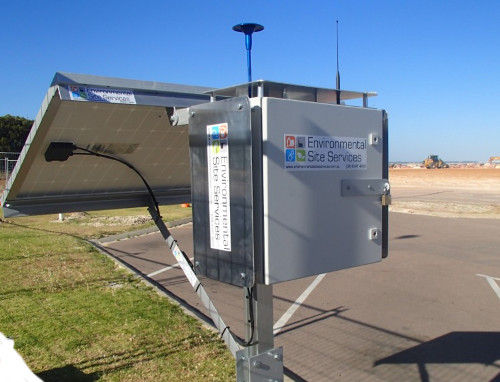The quest by the federal government to introduce the use of technology to address air pollution in Nigeria received a massive boost on Wednesday when the Federal Ministry of Science Technology and Innovation commissioned Air Quality Station to tackle Nigeria’s pollution rate said to be 44.8 per cent making the country the 10th most polluted country in Africa.
The permanent secretary of ministry of science technology and innovation, James Sule, in his speech during the ceremony held in Abuja on Wednesday, said the event was fundamental in the actualisation of the mandate of the ministry towards implementing the National Action Plan on Short-lived Climate Pollutants (NAP-SLCPs) approved by the Federal Executive Council in July 2019.
The National Action Plan on SLCPs identified 22 specific mitigation actions to reduce black catbon and methane by about 80 per cent and 60 per cent respectively. The ministry is providing the technological tool to implement the 13th Abatement measure under the waste management theme in the Plan. This project is one of the two projects that would be commissioned in Waste Management under 2022 Capital Projects of the Ministry, he said.
“The project which is the first of its kind by the ministry is a veritable technological tool and driver in harnessing the opportunities and potential of environmentally friendly technologies that are indigenous and are readily domesticated in Nigeria and Africa, taking into cognisance the common peculiarities of the African continent.
“It is no doubt that air quality systems have been in existence for many years, but this innovation by AirQo brings to the fore the ingenuity of our people in solving out own problems in the most appealing ways with an emphasis on global best practices,”Sule said.
The permanent secretary who is the champion of the innovation added that it will also provide the needed support and leadership that is key in birthing a highly specialised Air Quality System in the ministry that would reengineer critical prospects for environmental research, environmental justice, and environmental sciences and technology programming that is responsive to the needs and aspirations of our people as a nation.
“As you are aware, Nigeria has an air pollution rate of 44.8 per cent and is the 10th most polluted country in Africa, followed by Uganda and Ethiopia. This is why, it is of our interest that this innovation was researched and developed in Uganda that has a common air quality problem,” he said.
He commended Dr. Peter Ekweozoh, the Director in charge of Environmental Sciences and Technology Department in the ministry for identifying and aligning the ministry with this solution.
He, however, lamented that in 2018, reports show that over 11,200 premature deaths were estimated to be the direct result of poor air quality in Nigeria.
“According to the World Bank, 94 per cent of the population in Nigeria is exposed to air pollution levels that exceed WHO guidelines, and air pollution damage costs about 1 per cent post of Gross Domestic Product.
“It is of note, that nine (9) out of ten (10) people breathe polluted air. Air pollution is a big issue in Nigeria and has remained a recurrent decimal in our history, and it is timely to tackle the ugly mnonster headlong with all hands on deck. The use of firewood and coal to cook contributes to the air pollution crisis in Nigeria,” he added.
Dr. Ekweozoh in his remarks noted that the action has become imperative following the health hazard associated with air pollution and the need to join the rest state of the world to push for cleaner and greener activities.





